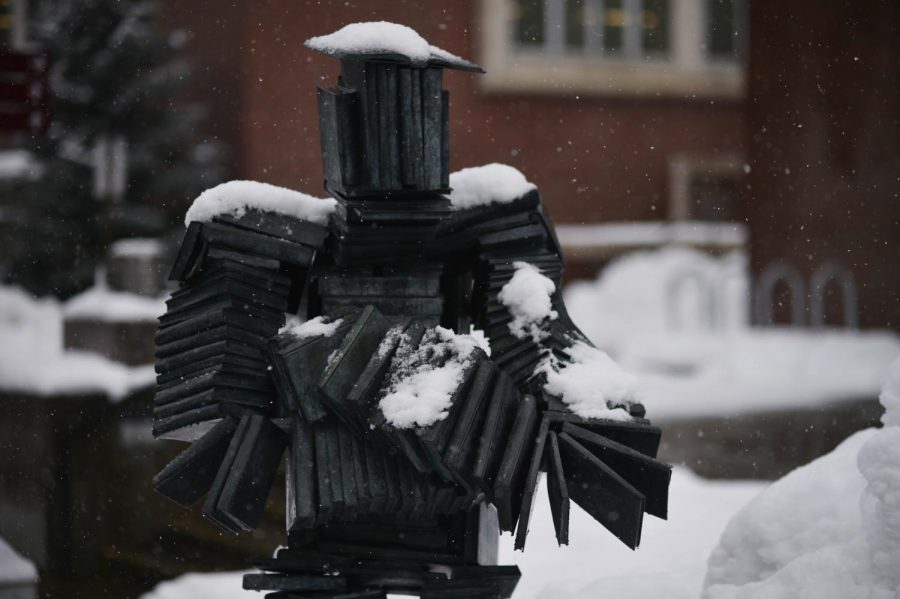A quick dead week allowed a longer break
Dead week coming after a week break was rough, but worth it for a long and enjoyable break
Snow gathers on Bookman, on Jan. 12, in front of the Holland Terrell Library.
January 22, 2020
This year, WSU changed up its yearly academic schedule in a slight, yet significant way. Typically the university’s winter break period lasts three weeks, starting after the second week of December and ends after the first week of January. For example, winter break 2018-2019 lasted from Dec. 16, 2018 to Jan. 7, 2019.
However, for winter break 2019-2020, the Scheduling Office of the Registrar decided to create a winter break schedule that was an additional week longer than previous breaks had been. This year, instead of the first day of instruction for the term being at the end of the first week of January, it is at the start of the second week of January.
So while having dead week right after Thanksgiving may have seemed stressful for some, this enabled a much longer winter break.
“The primary focus of this plan was to cater to students who are traveling over the holidays, so that students who fly between home and Pullman do not have undue pressure put upon them,” said Becky Bitter, senior assistant registrar at the Washington State University Office of the Registrar.
Another reason that the schedule was changed was to align more closely with the schedule of the University of Idaho. Some WSU students take cooperative courses at UI while maintaining their status as students of WSU. Meanwhile, UI’s spring term always starts on a Wednesday in the middle of January, which is a date that the scheduling office used as reference in terms of deciding a start date for spring semester 2020.
In all honesty, I think this extended break was a good idea for both students and faculty.
First of all is the obvious; it provides more downtime for students. An entire extra week, just for us students to spend time at home, traveling, working and even doing internships. In general, students never have collectively more time in the year without school. This has most likely been a constant since the early days of each of our educational experiences; kids have always wanted longer breaks.
Even incoming students appreciate the extra time added to the end of break.
“I’m a freshman so I haven’t experienced the three-week winter break, but I won’t complain about having an extra week off,” Ryan Bean, a freshman finance major, said.
This added time off could also benefit certain faculty, such as professors and graduate assistants. This grants these people more time to spend with family, traveling, doing alternate work, or preparing for the upcoming semester.
One caveat is something personal: a longer break made me miss Pullman more than if I had just had a three week break. During winter break 2018-2019, I was traveling between three different states on vacation and visiting family, and ended up being at home for only about one week, and then I was right back to Pullman. It didn’t seem long enough. After the whirlwind of events had ended, I felt like I had only been gone and “on break” at home for a single week. In contrast, in this longer break, I had extra time to spend at home, which in reality only made me realize how much I actually enjoyed the time I spent here and the people that live and work in Pullman.























Chris • Jan 23, 2020 at 7:53 am
WSU’s academic schedule has an extra week for winter break every 4th year. This isn’t something new